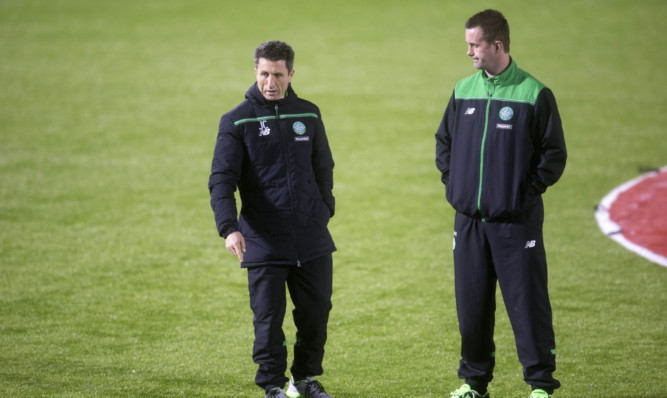Scottish football’s traditionalists are very keen on plastic, but only in the shops, online and on holiday.
When it comes to playing on it, they give it no credit at all.
The merest hint that St Johnstone chairman Steve Brown was contemplating an artificial surface to replace his grass pitch met with a pained reaction from the Luddites in the Scottish game.
Recent scares surrounding the possible effects of such pitches on health have also added to the furore.
Plastic is a misnomer.
Synthetic is the word which should rightly be applied.
Some modern surfaces are a hybrid of grass and artificial, and those which are not have moved light years beyond the pitch which Dunfermline introduced years ago, which was slippier than the linoleum at your old auntie’s ne’erday party.
I could understand the reluctance to move with the times if our pitches were like the greens at Augusta or at the local bowling club.
But many in fact most are like Culloden after the battle.
Maybe that’s why some of the football played on them resembles the charge of the clans.
On 3G pitches, the bounce and run of the ball is truer than on most grass pitches.
Teams can play on them every day, saving on training costs, and they can be a lucrative financial facility, allowing the community to use them and to strengthen bonds with their football clubs.
A generation of kids have grown up playing on such surfaces, and to them they are as natural as brightly coloured boots.
Suggestions that they cause more injuries are unproven, and several groundsmen I’ve spoken to in many years as a pitchside reporter would welcome cutting the grass one last time to install artificial.
They still require a groundsman to look after them, and they need regular watering to ensure that friction is kept to a minimum and that the game is quicker.
However, skilful players benefit from an accurate run of the ball, and they can lift their eyes to play a pass because they know the ball will land true at their feet, and not take a wicked bobble to leave them looking foolish.
The standard of the best artificial surfaces are improving rapidly, and cash-strapped clubs can see the long-term benefits both for their football and their finances with the two going hand in hand.
If we were guaranteed Spanish sunshine all year and had the riches of the English TV money to fritter in Scotland, then top-class grass pitches would be my preferred option.
Even our top clubs, though, are cash strapped and the costs of ground staff and maintenance on pitches where damage limitation and managing decline is the order of the day, is too big a cost to bear.
Celtic boss Ronnie Delia gave synthetic the thumbs up this week, and there appeared to be nothing artificial about his comments.
All it will take is for one of our really big clubs to leave nature behind and the rest will mow the lawn for the very last time, too.
